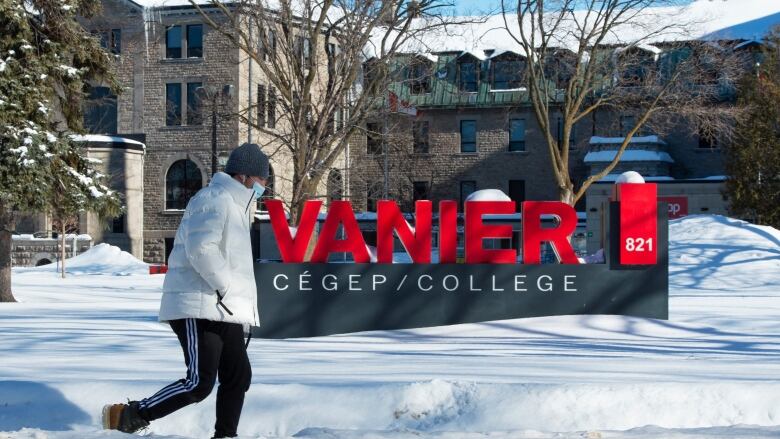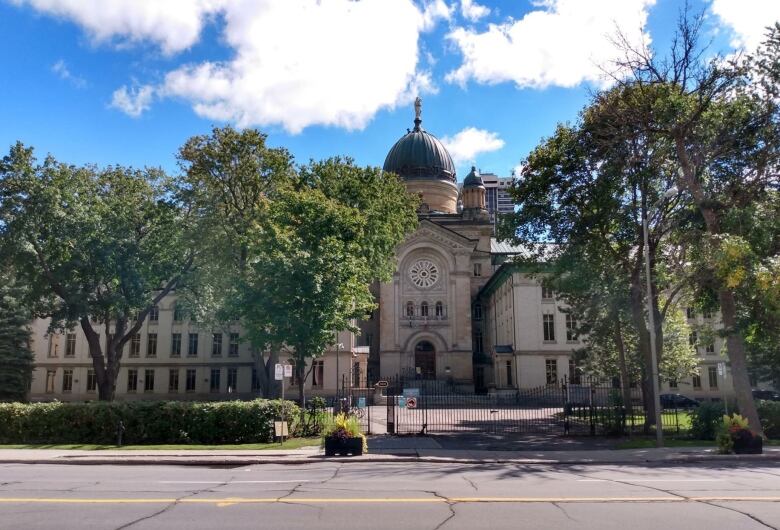Quebec eyes English CEGEP admissions in bill to protect French language
Legault says capping number of students could be in legislation to bolster Bill 101

The Quebec government is thinking about limiting enrolment at English CEGEPs as part of a broader plan to bolster protections for the French language, Premier Franois Legault said Thursday.
Legault's government is expected to table legislation in the coming weeks that will reform the province's language laws.
Politicians from across the spectrum have been calling for the laws to be updated amid concerns French is losing ground to English, especially in Montreal.
The centrepiece of the reform effort will be revisions to the French Language Charter (Bill 101), but Legault has already ruled out applying the charter toCEGEPs.
Instead, his government is weighing the possibility of capping the number of spots available at English CEGEPS as a way of preventing French-speaking students from leaving the French system.

"We don't want to extend Bill 101 to CEGEPs, but there's a possibility to limit the number of places," Legaultsaid at a news conference.
"I understand that some francophones would like to learn English by going to colleges, but I understand also that French is fragile."
Concerns about diverting francophone students
Each college in the province already has authorized enrolment targets, but the government often grants exemptions, allowing them to surpass their allotment by 10 per cent.
The current limit for Dawson College, for instance, is 7,100 students. For the past several years, though, the government has allowed it to enrol around 7,800 students annually.
Government sources told Radio-Canada they are working out how the enrolment restrictions would operate in practice. One option, they said, would be to stop subsidizing the number of students that exceed the prescribed limit.
Dawson is at the centre of the discussions, the sources said. Some advocates for the French-language worry the school, along with other anglophone CEGEPs in Montreal, is attracting too many francophone students.
If Dawson's student body should grow further, the concern is that ultimately the pool of French-language workers in Montreal would shrink.

Figures supplied by the Ministry of Higher Education indicate English CEGEPstookin about 46 per cent of the students enrolled in pre-university programs on the island of Montreal last fall.
When looking at the province as a whole, though, a more nuanced picture emerges.
A 2019 study by the l'Office qubcois de la langue franaise found that francophone CEGEPS are attracting increasing numbers of students whose mother tongue is neither English or French.
In 1985, around 45 per cent of these students went to French college. That figure had risen to 58 per cent by 2015.
A needless debate, CEGEP federation says
The president of Quebec's federation of CEGEPs, Bernard Tremblay,warned the government their plan could end up backfiring. He said francophone students intent on learning English will be driven out of the province.
"Will we find ourselves with a part of our student population that will choose to go on the other side of the Outaouais River?" he said.
According to Tremblay, the persistence of English in Quebec workplaces contributes to the appeal of English CEGEPs.
"I don't know many parents that don't want their children to be bilingual," he said. "I think we have to face the fact that, individually, we want bilingualism, but as a collective, we don't want it."
The Quebec Community Groups Network, an advocacy group for English speakers in the province, expressed concern that capping enrolment would distract CEGEPs from their core educational mission.
"CEGEPs, and post-secondary institutions writ large, should be about academic performance, not some kind of social engineering tool around language," said Sylvia Martin-Laforge, the group's director general.
with files from Hugo Lavalle, Alex Boissonneault and Chloe Ranaldi












_(720p).jpg)


 OFFICIAL HD MUSIC VIDEO.jpg)
.jpg)



























































































